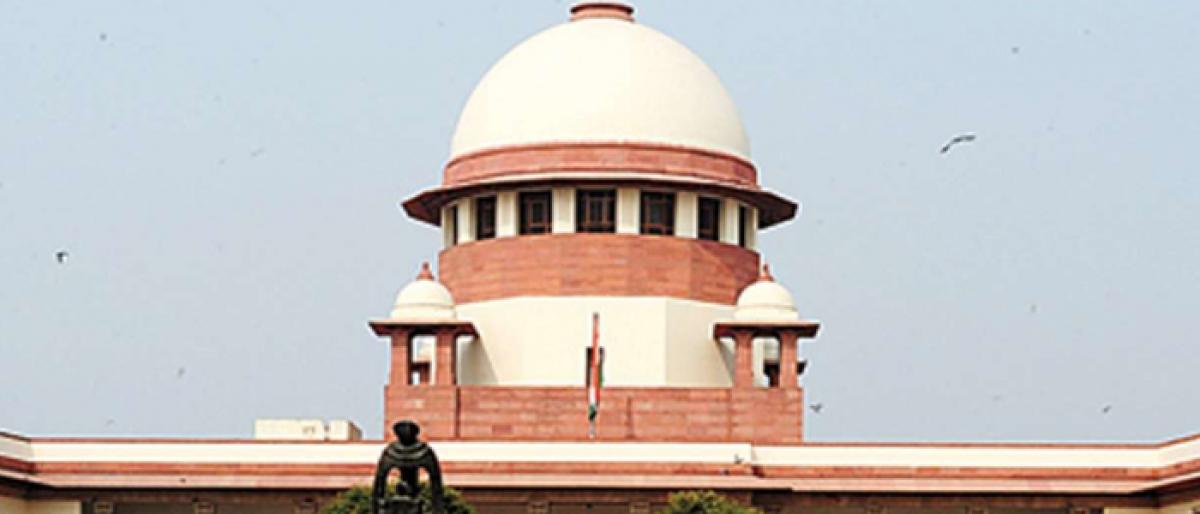Live
- Options data flags rising volatility
- Contrarians in sight amid low volumes-led pull back rally
- ‘Ksheera Sagara Madhanam’ enthrals audience
- Nifty back below 200EMA/ 200DMAs
- US Navy shoots down own jets over Red Sea
- Nara Devansh sets world record in chess
- Team India cross their fingers
- 3 energy efficient projects to reduce power bills in AP
- Governor Jishnu Dev Varma to Attend ABVP 43rd State Conference in Siddipet Today
- Transgenders to Begin Traffic Assistant Duties in Hyderabad from Tomorrow
Just In

The Supreme Court on Monday agreed to consider to list for urgent hearing petitions challenging the practice of polygamy and ‘nikah halala’ among the Muslims. Muslim men are allowed to have four wives.
New Delhi: The Supreme Court on Monday agreed to consider to list for urgent hearing petitions challenging the practice of polygamy and ‘nikah halala’ among the Muslims. Muslim men are allowed to have four wives.
The practice of ‘nikah halala’ bars a man from remarrying his former wife unless she has married another man, consummated that marriage and divorced him. The woman is also expected to observe a separation period called ‘iddat’ before she reconciles with her first husband. A bench comprising Chief Justice Dipak Misra and Justices AM Khanwilkar and DY Chandrachud said, “We will look into it.”
However, they did not give a date. The court was hearing the submissions of senior advocate V Shekhar, who sought that the petitions be listed before a five-judge Constitution Bench. Lawyer Ashwini Upadhyay, who is appearing for one of the petitioners, also told the court that she was being threatened to withdraw the petition. The court also allowed the Central government to file a response in the matter.
The petitions challenge the two practices on the grounds that they violate the Right to Equality and the principle of gender justice. One of the petitioners has said that the Muslim Personal Law renders Section 494 of the Indian Penal Code – marrying again during the lifetime of husband or wife – inapplicable to Muslims, and that no married woman from the community could file a complaint against her husband for bigamy.
In March, the Supreme Court had said it will examine the constitutional validity of practices such as polygamy and nikah halala among Muslims and asked the Centre and the Law Commission to clarify the positions on abolishing the practices.

© 2024 Hyderabad Media House Limited/The Hans India. All rights reserved. Powered by hocalwire.com







